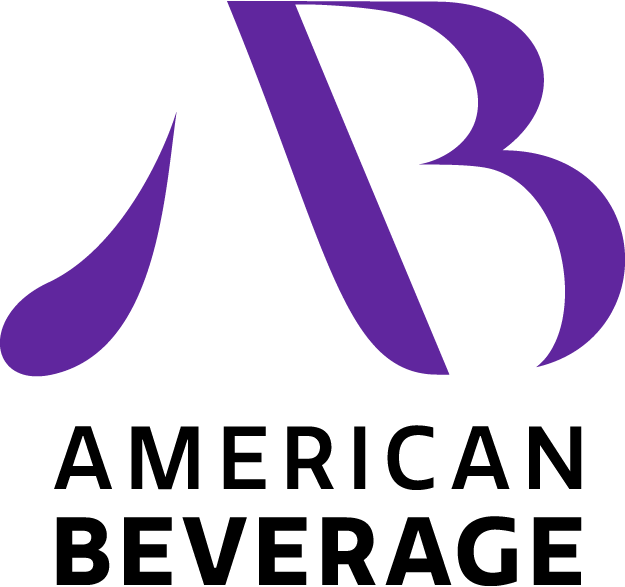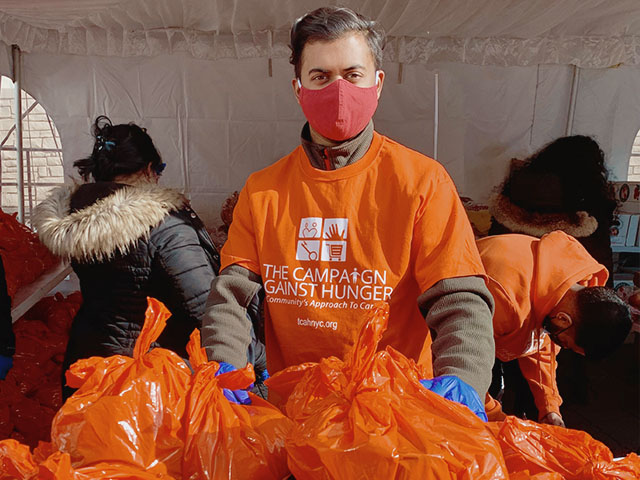The Wave – New Edgemere Farms Seeks To Feed Rockaway Peninsula by 2024

A team of volunteers and contractors built 43 planter boxes on the site of a new farm on Edgemere Avenue and Beach 44th Street. The 1.5 acre farm, which will be operated by The Campaign Against Hunger, will provide fresh produce and educational opportunities for the community.
At 9 a.m. on Oct. 27, around 60 volunteers and a crew of contractors gathered on a recently-bulldozed lot, just off the boardwalk in Edgemere. By noon, they had built 43 planter boxes, the foundation of a farm that by the next harvest season could provide large quantities of fresh produce for the Rockaway Peninsula.
The farm will be managed by the Campaign Against Hunger (TCAH), which currently operates a one-acre farm a few blocks from the new site, and another in Far Rockaway. The volunteers represented the site’s developer, L+M Development Partners, and its subcontractors and partners on the project.
Addressing a Crucial Community Need
The Rockaway Peninsula is in great need of such a farm, said Dr. Melony Samuels, CAH Founder and CEO.
“For years, we’ve been waiting on this project, because we believe it’s vitally important to have more fresh fruits and vegetables in our community,” she said to The Wave.
In a speech to the volunteers, Samuels spoke to the health disparities plaguing the surrounding community, including high levels of diabetes, heart disease and a disproportionate number of COVID-19-related deaths compared to the rest of New York City.
A lack of access to fresh produce in local stores, and high costs that block out families on SNAP benefits, are major contributing factors to this issue, she said.
The farm will address this by providing affordable vegetables at outlets like food pantries, schools, hotels, stores, and senior centers across the peninsula. It will also offer farming, cooking and nutrition courses in order to promote community knowledge about healthy diets.
The acre will be filled with planter boxes growing leafy greens, tomatoes, peppers, and other crops whose varieties and quantities will be determined by community demand and need, Samuels said. She hopes to see seeds planted by spring 2024.

A team of volunteers and contractors built 43 planter boxes on the site of a new farm on Edgemere Avenue and Beach 44th Street. The 1.5 acre farm, which will be operated by The Campaign Against Hunger, will provide fresh produce and educational opportunities for the community.
On a half-acre adjacent to the farm, a greenhouse will grow microgreens using hydroponic and aquaponic methods, in which crops are grown using only nutrient-rich water. A fruit orchard and herb garden will fill out the space.
“Everything about the farm is natural,” Samuels said. “Our farm is really grown by rainwater, and tap water. If we have to use any kind of deterrent from insects, it is natural.”
The farm will also serve as a classroom for local students, who will plant and harvest as part of their science classes and summer and after-school programs. As it does with its other farms, TCAH will look to hire youth in part-time farming positions following graduation.
“After a while it’s going to be a youth-run farm,” she said, adding that TCAH offers career and college readiness assistance and financial literacy courses to its employees as well.
An Efficient and Resilient Future
This groundbreaking was five years in the making, said Samuels. She first conceptualized the farm with L+M Development Partners in 2018 as part of the company’s development of 116-acres of vacant beachfront property in Arverne and Edgemere. The Arverne East project, which dates back to 2006, is led by L+M in partnership with the Bluestone Organization and Triangle Equities and is set to be completed in 2031.
“It’s been a long time. All our hard work is finally coming to fruition, which is nice to see,” said Jeffrey Ferrero, Project Executive and Vice President of Construction at L+M.
The farm will one day be surrounded by mixed-use and predominantly-affordable housing units, as well as a native plant nursery and rain garden operated by the Rockaway Initiative for Sustainability and Equity (RISE), and over 10 acres of open space. A recently-restored 35-acre nature preserve and 15-acre dune preserve already hug the property. A raised welcome center overlooks the farm and includes an office for CAH to oversee its development.

Contractors put finishing touches on planter boxes on a new one-acre farm in Edgemere. Behind them sits a lot that will soon host a greenhouse for hydroponic and aquaponic agriculture, and beyond that a recently-built welcome center.
The farm is indicative of the project’s central goals, said Sara Levenson, Senior Director of Development at L+M.
“Everything that we’re doing here is offsetting our carbon footprint, and very focused on energy efficiency, renewable energy, and resiliency,” she said. Geothermal and solar energy are among the ways the development will be powered.
Resiliency primarily refers to the development’s ability to withstand future storms like Hurricane Sandy, and rising flood levels that scientists predict to rise in the future.
“The resiliency can certainly be used around here,” Ferrero said. “If you drive around here after a storm, there’s a lot of areas that are literally underwater.”
Adjacent to the farm are mountains of soil that will be used to raise the site by up to eight feet to prepare for future flooding. The site’s asphalt surfaces will be constructed from a highly absorbent material, and stormwater drainage swales will dot the property.
“I think it’s a great example of how you can reclaim your coastlines and live resiliently and energy efficiently,” said Ferrero. “Not just today, but really for the future.”
In the meantime, locals can visit the Beach Dunes Eats & Arts Cafe, which was opened in April 2022 by TCAH in an affordable housing complex on Rockaway Beach Boulevard built by L+M. The cafe offers fresh produce from the Edgemere TCAH farm, hot meals and groceries, and even a job training program.





